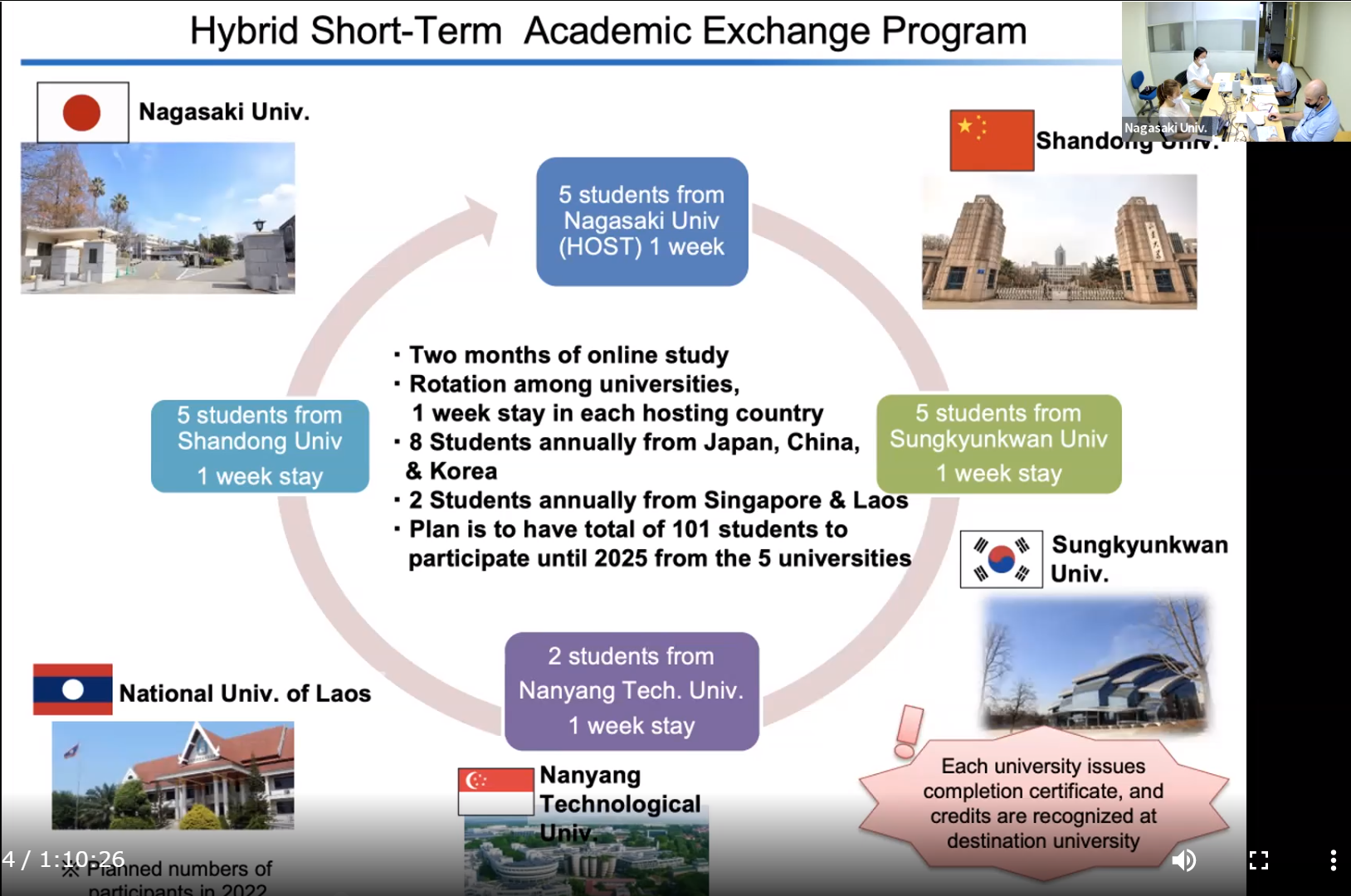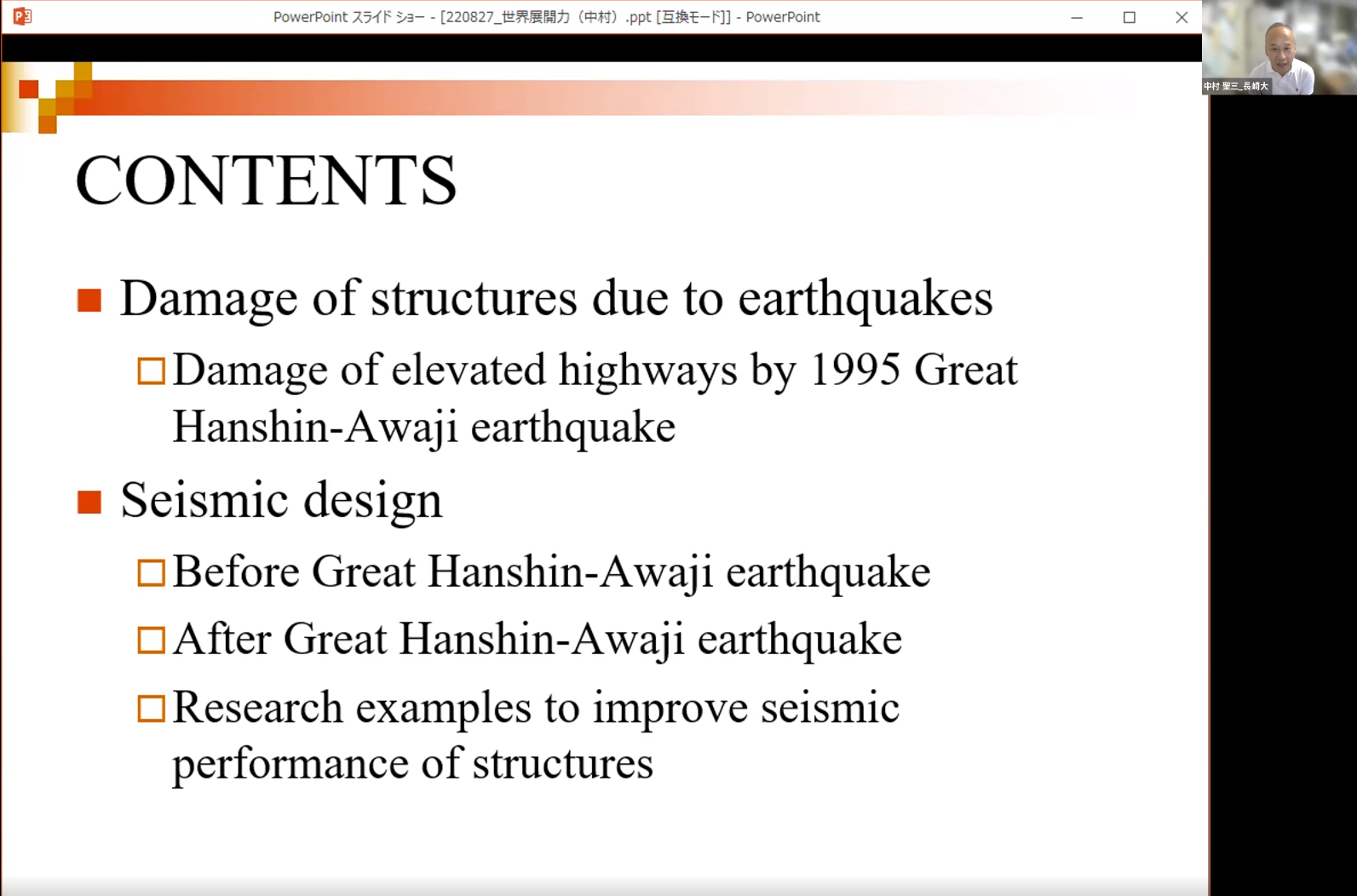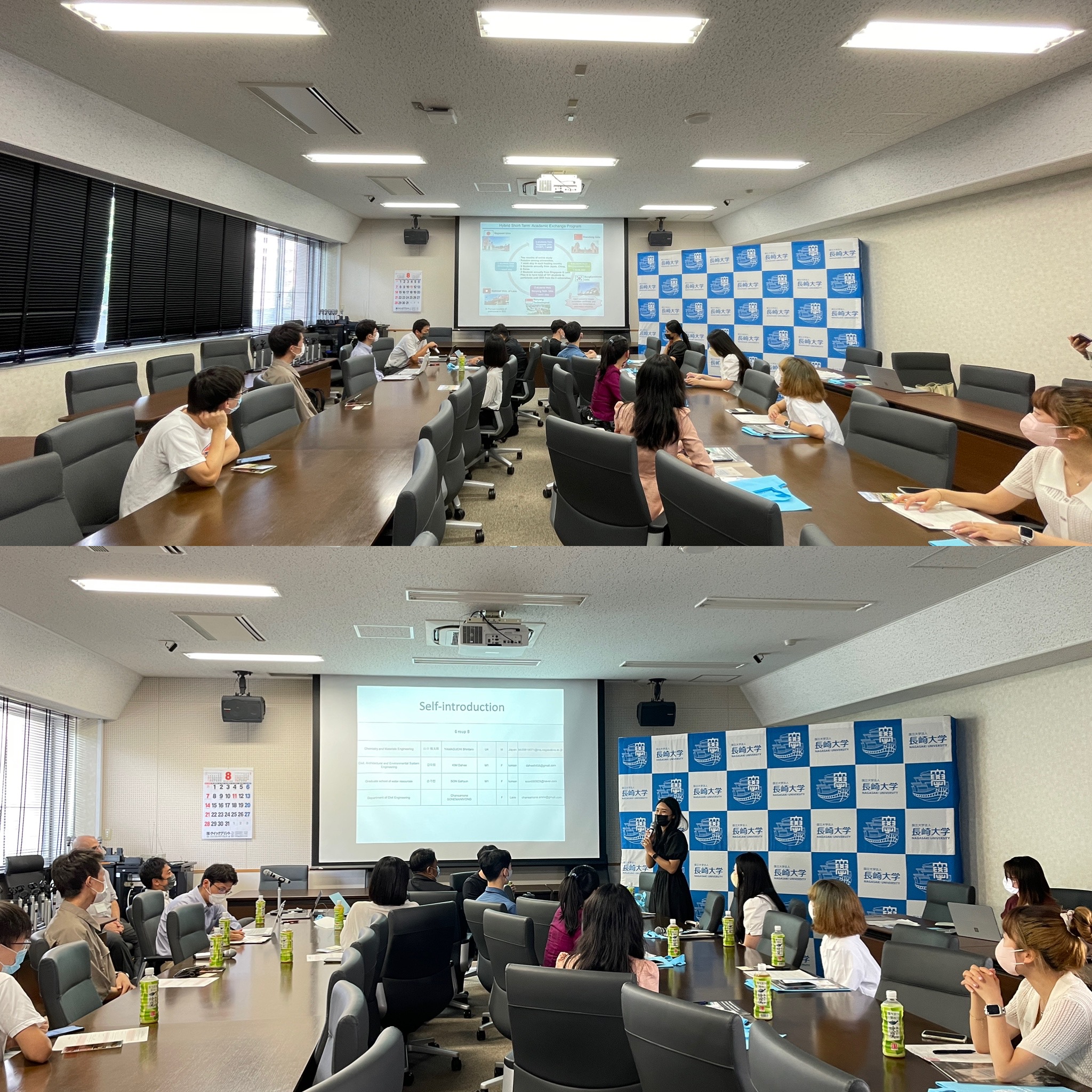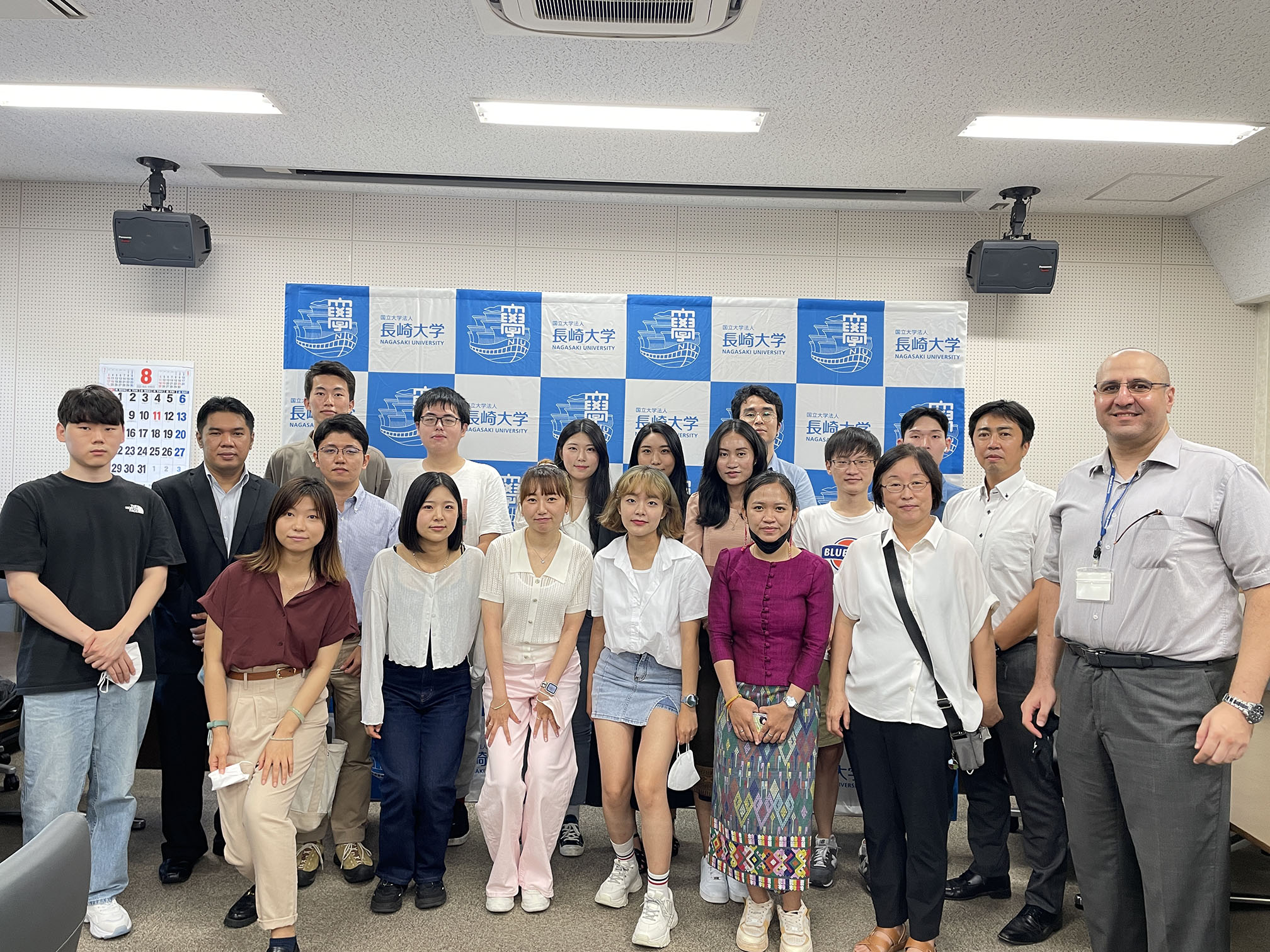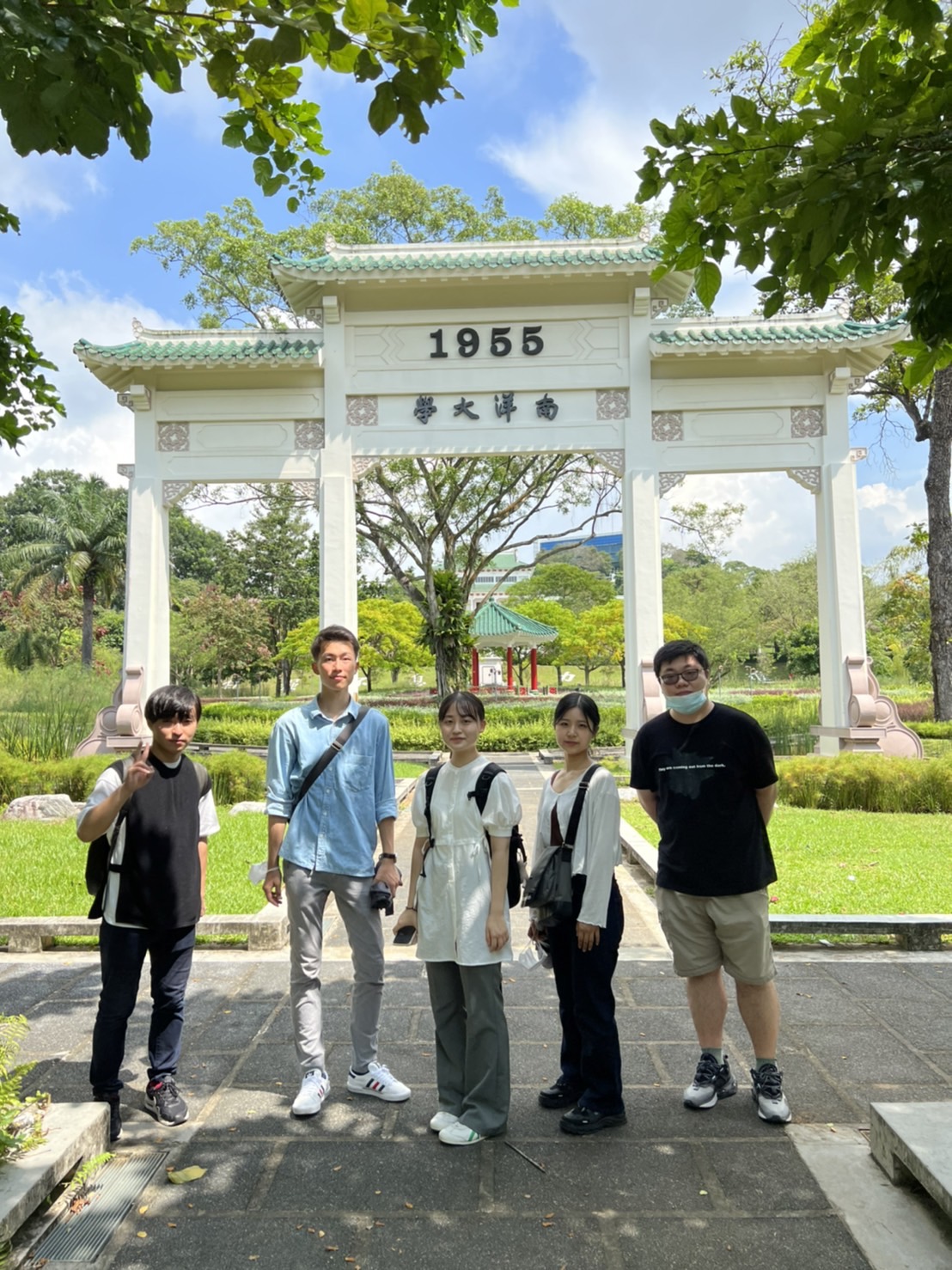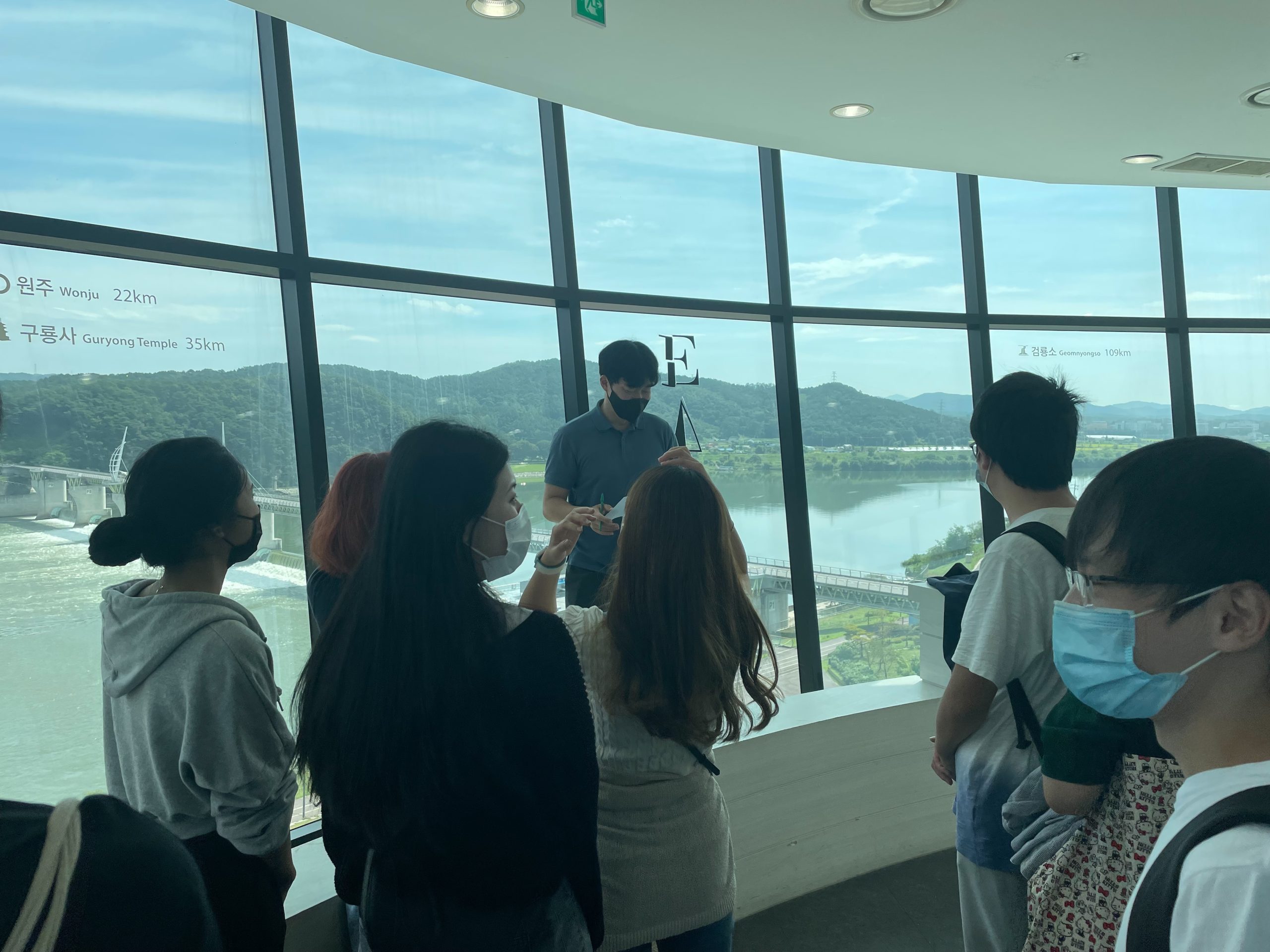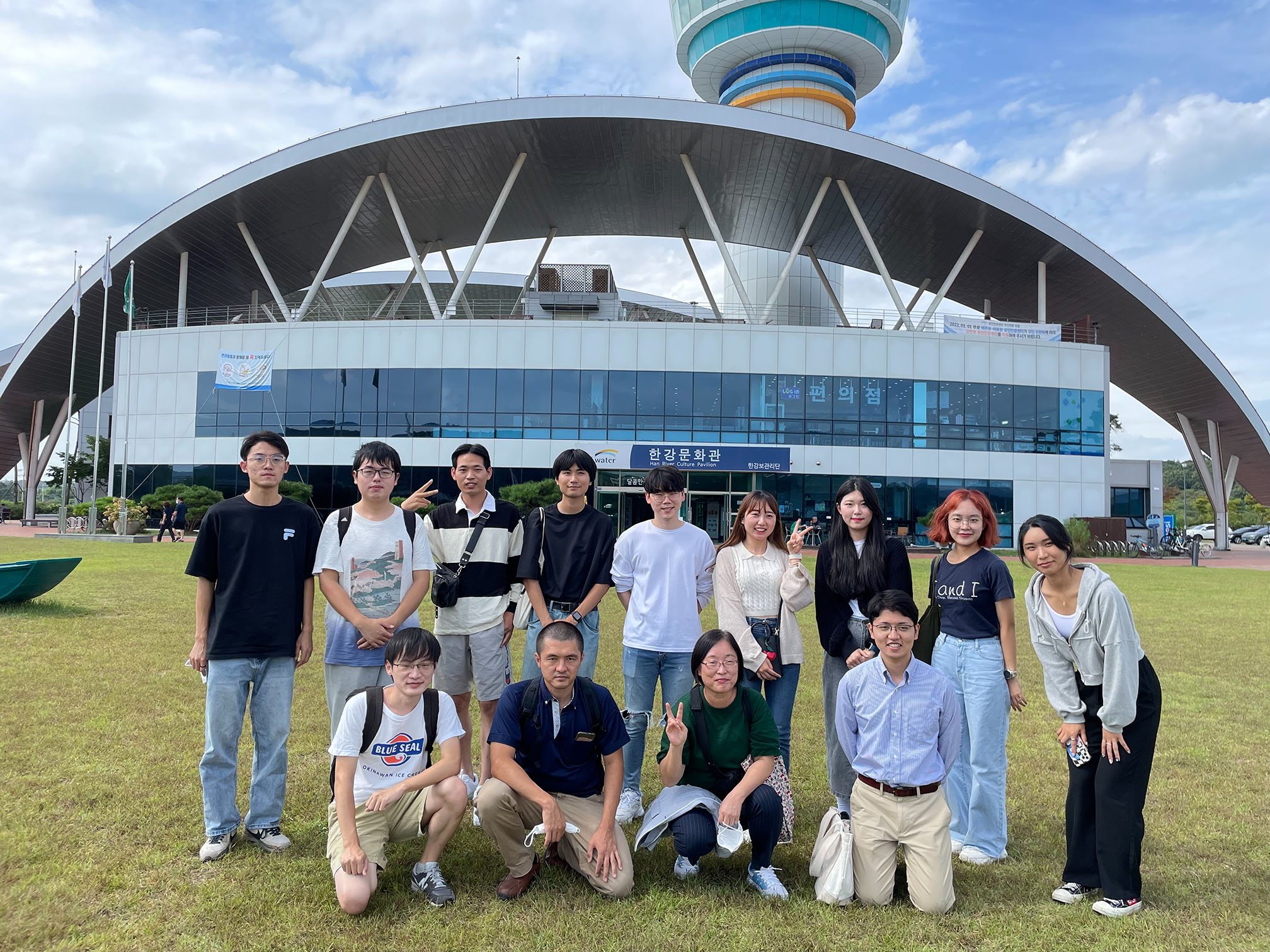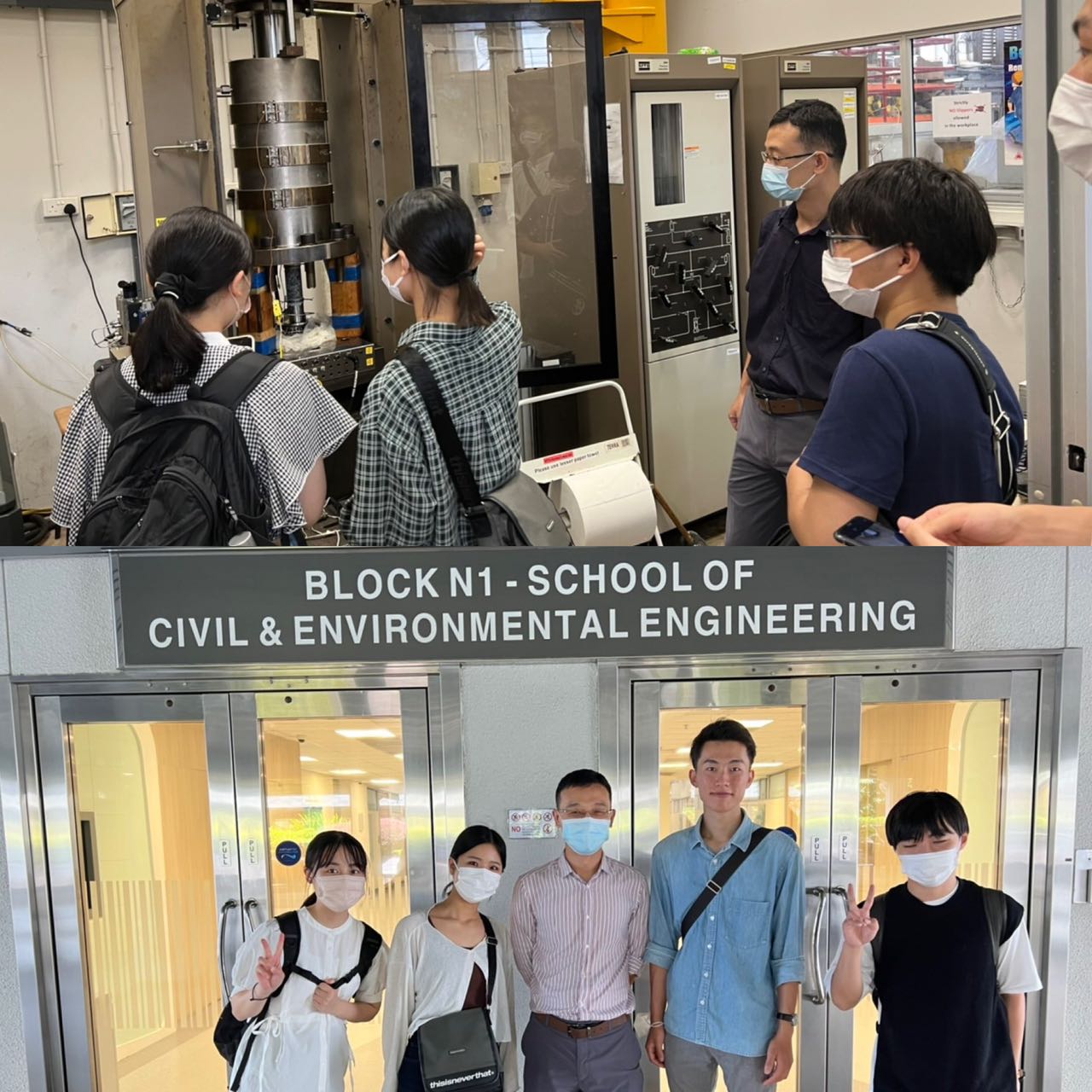Start of Hybrid Short-Term Academic Exchange Program
The “Hybrid Short-Term Academic Exchange Program”, which is added in the third mode, finally started in August. This program is one of the main features of Campus Asia Project, which deepens students’ insight into different cultures and other countries’ infrastructures through an academic exchange program that combines online study and actual travel abroad.
This year, while taking into consideration the impact of the Covid 19 pandemic, we planned to conduct lectures and exercises both online and optionally in person. About 30 students from Shandong University (China), Sungkyunkwan University (Korea), Nagasaki University (Japan), Nanyang Technological University (Singapore), and National University of Laos (Laos) are participating in the program, and a total of 34 lectures are planned.
From August 21 to 26, six students and five faculty members from Sungkyunkwan University and two students and one faculty member from National University of Laos visited Nagasaki. Two alumni from the second mode of Campus Asia also participated and cooperated in arrangements and planning of the trip contents and hosting of inbound student participants. There was student exchange meeting in English in which there was an overview about the status of infrastructure development and introduction of the activities of alumni after graduation.
and conducted a site tour of the city under the planning of Nagasaki University students. Nagasaki University students planned and guided visitor students in a tour to sites in Nagasaki city. During the site visit, participants visited infrastructure construction sites such as the Honmyo River, the Unzen Fugendake volcanic disaster restoration construction site, and the Unzen Disaster Memorial Hall, providing an opportunity to understand the social background of Japanese infrastructure and Japanese culture. During the exchange meeting among the faculty members, there was a lively exchange of views on the project, its progress, and future challenges for student exchange. During the exchange meeting among faculty members, there was a lively exchange of views on the project, its progress, difficulties, and future challenges for student exchange.
On the other hand, four undergraduate and graduate students went from Nagasaki University to Nanyang Technological University in Singapore from September 8 to September 15, and three undergraduate and graduate students went to Sungkyunkwan University in Korea from September 14 to September 19.
During the study abroad period in Singapore, outbound students visited modern infrastructure facilities in the city and learned about systematic urban planning. At Nanyang Technological University, our students exchanged views with host doctoral students from the graduate program and visited experimental facilities and laboratories related to the latest infrastructure technologies.
During the study abroad period in Korea, students visited infrastructure-related facilities, Gangcheonbo Reservoir and Chungju Dam. For the cultural experiences, the students went on tour around Seoul’s ancient palace, Gyeongbokgung, and old town of Bukchon, as well as Sungkyunkwan University and Hwaseong Fortress.
The students were eager to learn about different cultures during their study abroad this time and actively interacted with students participating in Campus Asia at Sungkyunkwan University and Shandong University, gaining valuable experiences.
Unfortunately, students from Shandong University were unable to participate in the actual travel exchange activities due to the restrictions related to the pandemic. However, students from Nagasaki University and Sungkyunkwan University, who participated in actual travel exchange activities shared what they learned in their trips abroad with other students who could not participate.
There will be presentations of the results of the program, where students will present what they experienced and learned through the online lectures and the in-person study abroad program.
